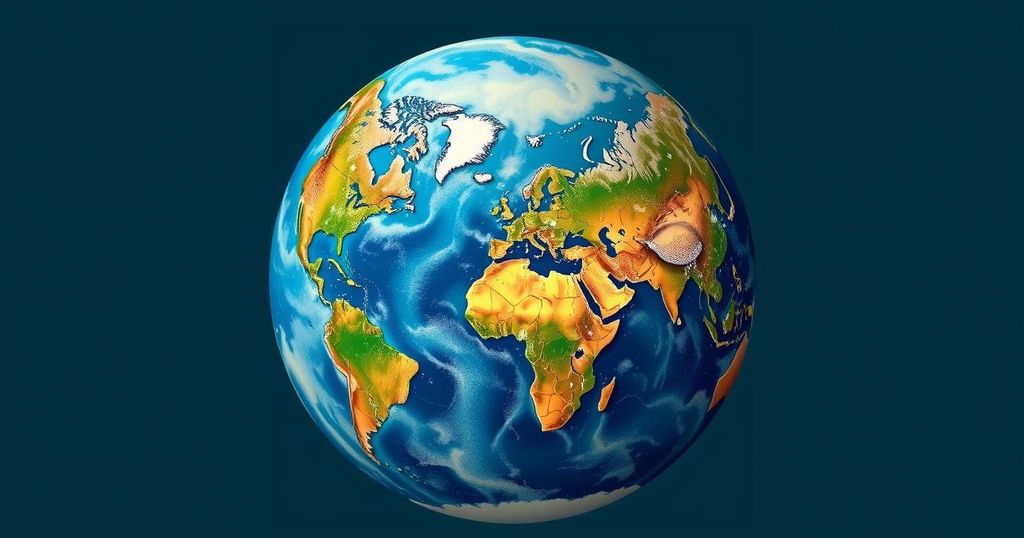Climate change
AFRICA, ALEX MURRAY, ASIA, AZERBAIJAN, BAKU, CLIMATE ACTION AGAINST DISINFORMATION, CLIMATE CHANGE, CLIMATE JUSTICE, DONALD TRUMP, EGYPT, ELON MUSK, ENVIRONMENTAL POLICY, GREENHOUSE GAS EMISSIONS, INTERNATIONAL COOPERATION, MARTINA DONLON, NEW YORK, NORTH AMERICA, PARIS AGREEMENT, SHARM EL - SHEIKH, U. N, UNITED NATIONS, UNITED STATES, WORLD METEOROLOGICAL ORGANIZATION
Leila Ramsay
0 Comments
UN Warns Against Climate Disinformation’s Threat to COP29 Talks
The United Nations has warned that the surge of disinformation about climate change is undermining critical policy decisions leading up to COP29. The U.N. has initiated actions to combat this issue, which includes addressing misinformation tactics that range from outright denial to harassment of climate scientists. The proliferation of false information, especially on social media, poses risks not only to climate talks but also to public understanding, financial support for climate journalism, and engagement with affected communities.
The United Nations has issued a warning regarding the proliferation of misleading and false information about climate change, asserting that this disinformation poses a significant threat to the COP29 climate talks. Martina Donlon, head of the climate section of the U.N. department of global communications, emphasized that disinformation is now recognized by the international community as an urgent concern that undermines policy decisions grounded in scientific evidence.
The U.N. has launched an initiative to combat this issue, which encompasses various forms of misinformation, from overt denial to greenwashing and harassment of climate scientists. This initiative has gained traction with participation from member countries across three continents and international organizations dedicated to climate action. The initiative’s roots lie in the U.N.’s Global Digital Compact, aimed at assessing how misinformation impacts sustainability goals.
Past climate conferences have experienced similar challenges due to disinformation campaigns, particularly evident at COP27, where critics alleged that the fossil fuel industry exploited misleading narratives to hinder progress. Experts have pointed to the compromised state of the climate information ecosystem, exacerbated by influential figures, including those who have amplified disinformation through social media platforms.
The influential role of social media platforms in propagating climate denial is highlighted by researchers who assert that the influx of false narratives fosters public confusion, potentially impacting national elections and undermining international climate negotiations. The rise of disinformation, with its intent to sow doubt and confusion, has provoked significant concern within advocacy circles.
The U.N. initiative against disinformation, initiated in 2021, has garnered recognition from various bodies, including the IPCC, noting that disinformation fosters misperceptions of scientific consensus. Major tech platforms contribute to this ecosystem by profiting from sensationalized content, leading to the amplification of false claims.
Engagement with local communities and improving media literacy are proposed solutions to counter climate misinformation, alongside calls for enhanced transparency regarding moderation and algorithm practices on social media platforms. Additionally, researchers stress the critical need for well-funded climate journalism as a counterbalance against the pervasive spread of falsehoods.
In conclusion, the disinformation concerning climate change significantly hampers efforts to address climate issues, creating divisions, obscuring trust, and disrupting progress. The U.N.’s commitment to combating this misinformation is vital to preserving the integrity of scientific dialogue and fostering effective climate action. As stakeholders gear up for COP29, the attention to combating disinformation will be crucial for ensuring robust climate policies are grounded in factual, scientific discourse.
The ongoing challenge of disinformation in climate discussions has gained increasing attention from international organizations, notably the United Nations. The urgency surrounding misinformation has become a prominent concern for climate negotiators as misleading narratives threaten to derail science-based policy formulation, particularly in pivotal conferences such as COP29. This issue resonates throughout various sectors, complicating efforts to achieve consensus on tackling climate change at global summits.
In summary, disinformation regarding climate change represents a formidable barrier to effective climate action. As the U.N. and other stakeholders mobilize to contend with this challenge, it is imperative that scientific integrity and accurate communication prevail in climate discourse. Collaborative efforts across nations and organizations are essential in countering misleading narratives while fostering a trust-based environment crucial for successful climate negotiations and initiatives.
Original Source: www.nationalobserver.com




Post Comment